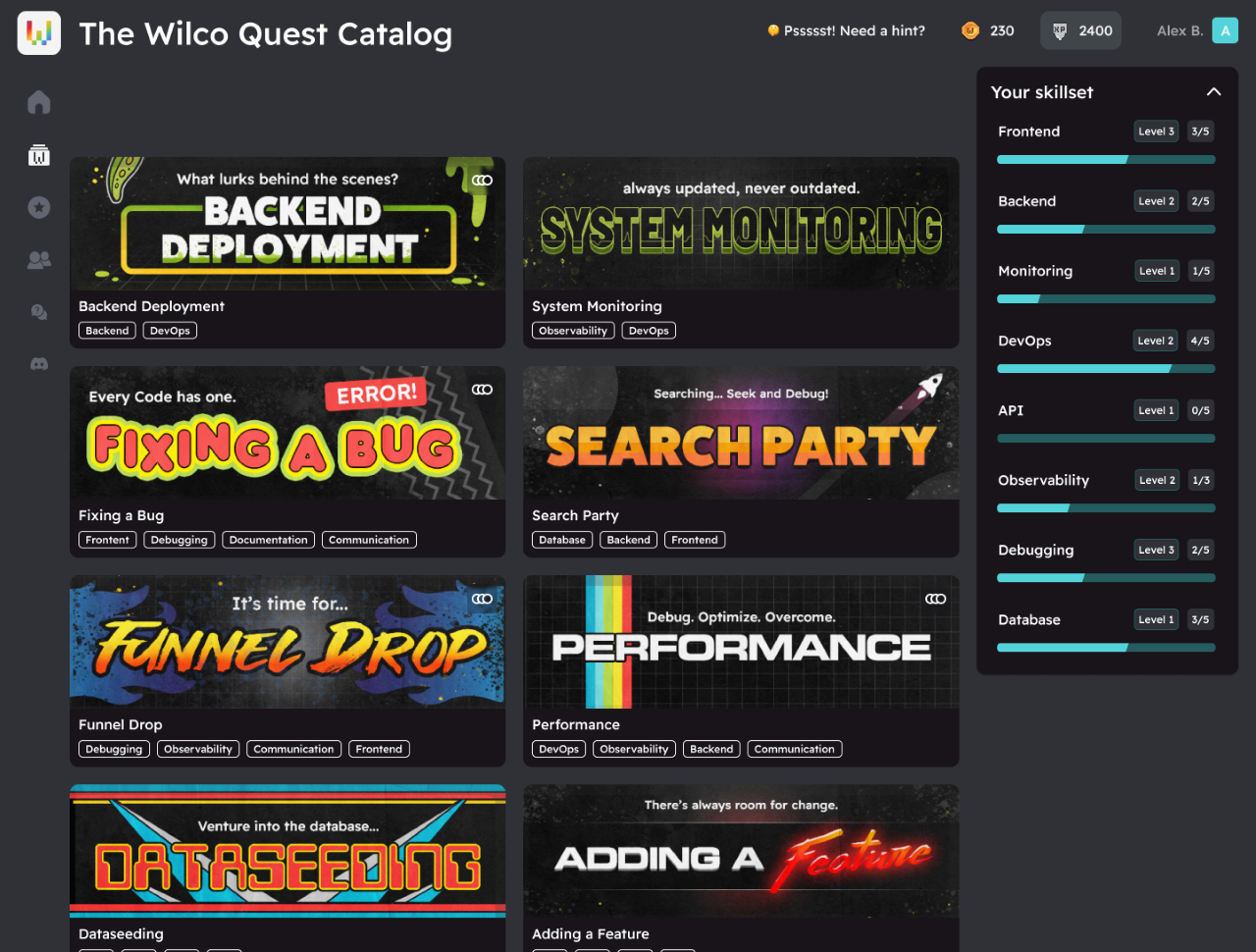Israeli tech startup Wilco closes experience gap for aspiring software engineers
The startup fast-tracks the learning experience for engineers breaking into the field

EYAL MARILUS
The Wilco leadership team
A rookie software engineer sits at his desk and faces a problem he’s never encountered before, at least not in his college coding class. The wrong fix could cost his company millions, but luckily the stakes here are much lower. This engineer is honing his skills at a fantasy company on an online platform that works much like a flight simulator for aspiring pilots.
When the Israeli startup Wilco launched its simulator platform last month, On Freund, the company’s CEO, and his founding partners were taking a page out of the playbook used by pilots, architects and race car drivers by creating a simulation experience for software engineers to gain new skills and master existing ones regardless of someone’s career opportunities or background. Engineers using Wilco complete various “quests” that allow them to practice troubleshooting problems that commonly arise in real-world situations, but in an engaging way that’s akin to a video game.
“I quickly realized that there is a difference between the theory which they have learned in school and the actual hands-on practice that takes years to come by,” Freund told The Circuit.
The idea for Wilco (the name comes from the Roger Wilco character in the “Space Quest” movie franchise, not the alt-rock group) came to Freund about a decade ago. After he graduated from Tel Aviv University, he was managing a team of engineers at Handy, an online platform that connects users with cleaning and handyperson services, and Freund was looking for ways to let his team practice and learn new skills, outside of coding, that were not taught in university.
Freund thought about hosting an evening school where he could expose software engineers to real-world problems within a few months, rather than the decades it might take on the job. He kicked around the idea for a few years, and in 2020 he reached out to a few chief technology officers, who supported his goal.
One of Freund’s former colleagues, however, told him to think bigger.
“I mentioned my idea to a colleague of mine and he told me I was stupid. He said that I was going to have six, maybe 10 developers per class, which wasn’t making a dent in the universe,” Freund said. “He wanted to work with me and figure out a scalable way to solve this problem.”
A year later, in 2021, Freund, Alon Carmel, Wilco’s chief products officer, and Shem Magnezi, the startup’s chief technology officer, came together to launch Wilco with $7 million in seed money; the platform is accessible to any software engineer regardless of their background or location.
All three founders understood that gaining new engineering experiences on the job was a tough and slow process. They wanted to close the gap of experience for people who may be working at companies that don’t have access to the same resources or a strong set of mentors that inspire and push their employees.
“What we try to do is give engineers an environment where they can gain experience at their own pace, in a safe way, and solely based on their merit,” Freund said.

The ‘quests’ offered by Wilco
Wilco is unlike other coding practice websites that allow participants to practice only one set of skills. Freund stresses that coding is just one of the many skills an engineer needs to be a good software developer.
Wilco allows engineers to join a fantasy company that has all the complex systems that a real company would. Freund ticked off some of them: logging data, monitoring, analytics, load balancing a network’s infrastructure, a real data set, as well as the unexpected issues that typically arise from humans working on all of these components.
Engineers then join a “quest” that includes a problem that the engineer must fix. The quests, Freund said, grew out of experiences Wilco’s partners faced in their own careers as developers. He gave the example of a company needing to know the extent of damage for a particular software problem, how the engineer would fix it and how the problem should be communicated to a stakeholder.
“The focus is not on how to fix a problem, because anyone can learn that in college or a boot camp or even an online course,” Freund said. “The focus is how do you even know that something’s wrong in production? What do you do once you’ve found out? Do you go for a quick-and-dirty fix or something more meaningful?”
What Freund finds most rewarding about Wilco is hearing developers talk about the value they get out of the platform. Engineers can communicate with each other over Discord, the voice and instant messaging platform, where they often ask each other how to solve certain quests and exchange tips and advice.
Freund wants Wilco to become the standard place for developers to practice, in the way that flight simulators are for pilots.
“Software engineers shouldn’t be expected to wait for an emergency or something extremely important to happen that they must solve without previous experience,” Freund said. “We want to be a place where developers can practice regardless of their background or skill level to unlock their full potential.”









